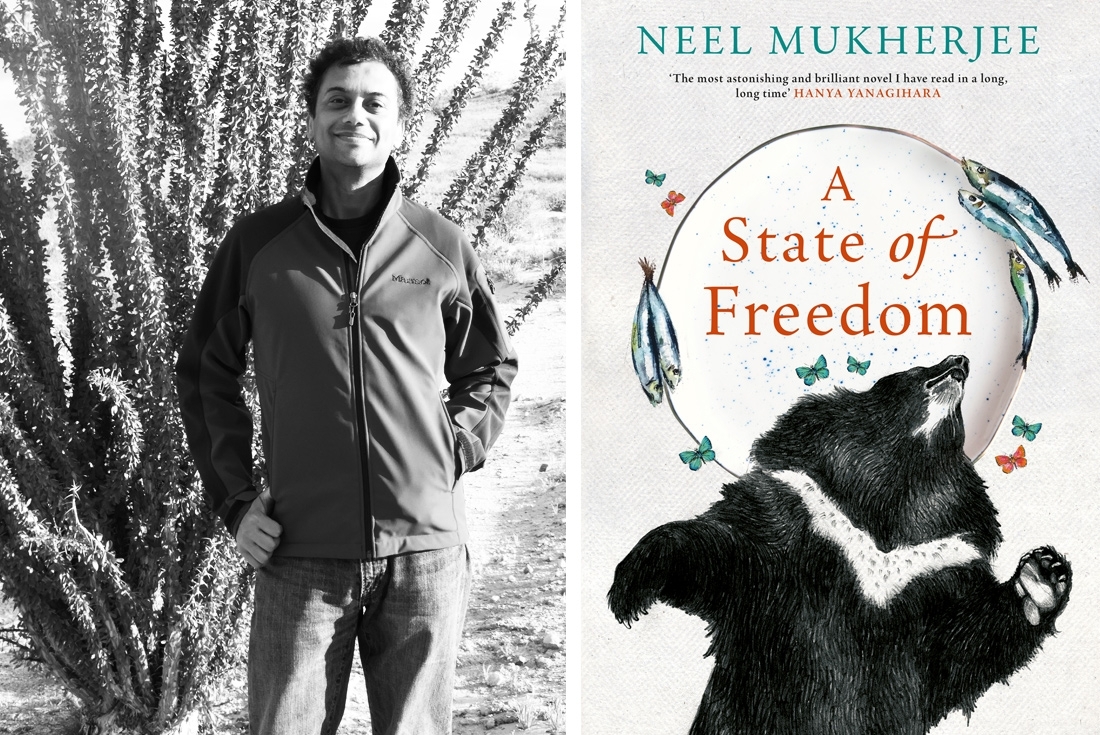

What makes The Great Immigrant Novel a favourite year after year? The world loves feasting on its misery and nostalgia, but we often forget that at the essence of displacement is the insatiability of the human spirit to find a different life; something brighter, better, brilliant. Perhaps there is another way we can understand this inevitable drift of mankind. That was award-winning author Neel Mukherjee’s quest when he set out to write A State of Freedom, a collection of diverse stories straddling the real world and ghosts of another, in a form as fragmented as its subject. I got an insight.
What inspired you to write the book?
I’ve always been interested in the movement of people, whether in terms of physical movement, ie, migration, relocation from one place to another, or more metaphorical movement, such as change. Then there was also my interest in the lives of domestic helps, still called ‘servants’ in India, and in the lives of more indigent people. A separate strand came from reading, as all writing invariably does—if I didn’t read, I wouldn’t write. In this instance, it was revisiting V.S. Naipaul’s great novel from 1971, In A Free State, that added the ignition to all the different materials I was trying to order together in my head.
At its core, you say, is displacement, dislocation and desire—but not as we’d imagine. Is there a flaw then, in the common perception of these experiences, which you felt the need to address?
Well, whenever the word ‘displacement’ is mentioned, the dreaded words ‘exile’, ‘home’, ‘belonging’ are not far behind, and that terrible confection, ‘The Immigrant Novel’, you can be sure, too, a ghastly stew of nostalgia, Mummy’s cooking, smells and sounds of a notional and theoretical home, fractures of assimilation, and that whole shebang. This abysmal genre has been encouraged in the West because there’s nothing more they like than seeing how everyone from the troubled half of the world is trying to get to their paradise and make a new home there. It makes them feel wanted, revered, looked up to, at the very desired centre of things. I wanted to show that there are other meanings and experiences attached to the concept of ‘displacement’; looking at ‘migration’ rather than ‘immigration’.
Your characters are diverse—an NRI travelling to Agra with his son, a hipster who is a keeper of traditional recipes, a domestic cook in Mumbai, a man with a dancing bear, two girl friends one of whom escapes the terror of tribal village living. How did you find your characters and build each of their very different experiences and outlooks?
That’s what writing fiction is. You create characters, and try to make them three-dimensional, make them live and breathe on the page, by squeezing your eyes tight shut and launching yourself into their minds and their inner worlds.
The multiple narratives, fragmented form and the text linking in odd and even number chapters lends an interesting structure to the book. Was this interconnected multiplicity intended, given the subject?
Your point about linkages between odd- and even-numbered chapters is interesting—I hadn’t noticed it until you pointed it out. But, yes, not only were the five sections and the balance of their internal musical system of assonances, rhythms, echoes carefully thought out, but I also worked hard not to make everything come together in a neat, pat way. Or even, not to make everything cohere. Surely a book about migration and displacement must reflect, in its form, the dissonances and fissures associated with the experience? The book is about breakage, not unity.
There’s a ghost story, but the book is also brutally real. It's an interesting contrast...
You’re very correct in pointing out that the brutal realism of the novel is married to exactly its opposite genre—the ghost story. Realism is such an expansive form that I’m interested in pushing and bending and denting it. Also, the great English writer, M. John Harrison, who is a continuing influence, once said that any writer worth his salt must ask the question of the form in which he’s working, What is it that this genre cannot do?, and then try to push the genre in that direction of impossibility. I have this sentence inscribed and framed on my desk and I draw inspiration from it every day. To break a form surely must be the ultimate goal of every artist, no?
Ah, that brings us to your evolution as an artist—as a writer.
All I can say is that things don’t get any easier with time.
And what is next from here?
Not another book on India—that’s the only thing I can say with any confidence. And maybe a short book after this, in a very different genre?
Text Soumya Mukerji